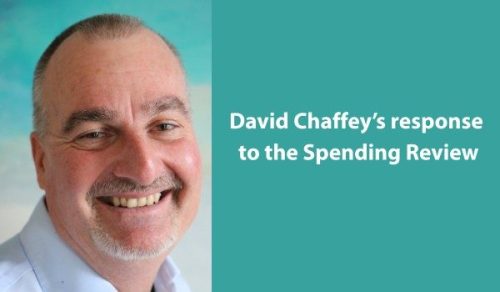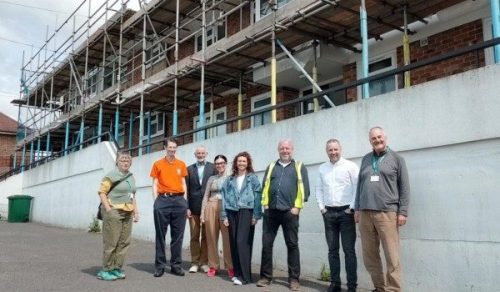BHT Sussex has launched a new campaign which seeks to change the system that discriminates against homeless hostel residents who start work.
BHT Sussex is to press the Government to end an unfairness in the benefits system which results in homeless hostel residents being financially disadvantaged when they start working. This is a national problem affecting both individuals and the economy as a whole.

Our Accommodation for Work Project, funded by the National Lottery Community Fund, offers temporary shared accommodation and support for people to enter or re-enter employment and training.
Work undertaken by the project has shown that, contrary to Government policy, the current benefits system means that homeless people living in hostels can find themselves financially worse off in work. The issue is equally relevant to homeless people who are living in temporary accommodation.
At the heart of this unfairness is the difference between how Housing Benefit and Universal Credit calculate earnings.
People living in hostels claim Housing Benefit for help with their rent, unlike people living in other accommodation who claim Universal Credit for help with their rent. Both groups claim Universal Credit for non-housing related benefit (called the ‘personal element’).
Whilst this difference does not financially impact on hostel residents who are not working or who are earning under £608 per month, as soon as someone earns over £608 per month, they are immediately financially disadvantaged.
A hostel resident who is classed as ‘fit for work’ and is over 25 and earning up to £608 per month will retain some of their Universal Credit personal element and this means that Housing Benefit can pay their full rent.
However, when that person starts to earn over £608 per month, they hit a cliff edge in the current benefits system. As they cease to be entitled to any Universal Credit personal element, their income is subsequently assessed by Housing Benefit, not by Universal Credit, and this results in significant financial disparity.
For example, a hostel resident earning £610 per month, just £2 more a month, with rent of £700 per month, would need to pay £165 a month towards their rent. If this person did not live in a hostel and could therefore claim Universal Credit housing element, they would only need to pay 59p towards their rent. They are nearly £165 worse off because they live in a hostel.
The Accommodation for Work Project has worked closely with Brighton and Hove Housing Benefit department to use discretionary housing payments to prevent project residents from being financially worse off when they are working. However, as this is only a discretionary payment, this innovative work at the local level is not a solution to this national problem.
The UK Government’s own website states that the Department for Work and Pensions (DWP) is responsible for ‘encouraging people to work and making work pay’, and one of its priorities is ‘to run an effective welfare system that enables people to achieve financial independence by providing assistance and guidance into employment’.
There needs to be Government change to Housing Benefit calculations for homeless people living in hostels. BHT Sussex is recommending that Housing Benefit adopts the same treatment of income as Universal Credit, so that hostel residents are treated the same as other working benefit claimants.
Nikki Homewood, Director of Advice and Support Services at BHT Sussex, said:
We call on MP’s and parliamentary groups to support this change. It clearly makes no sense for homeless people who want to enter or re-enter employment to be, in effect, penalised for doing so.
David Chaffey, Chief Executive at BHT Sussex, said:
We are writing to relevant Ministers and members of Parliament to explain the real effects of this anomaly in the benefits system. This is a national problem and can only be properly addressed by a change in national policy and benefit rules.





